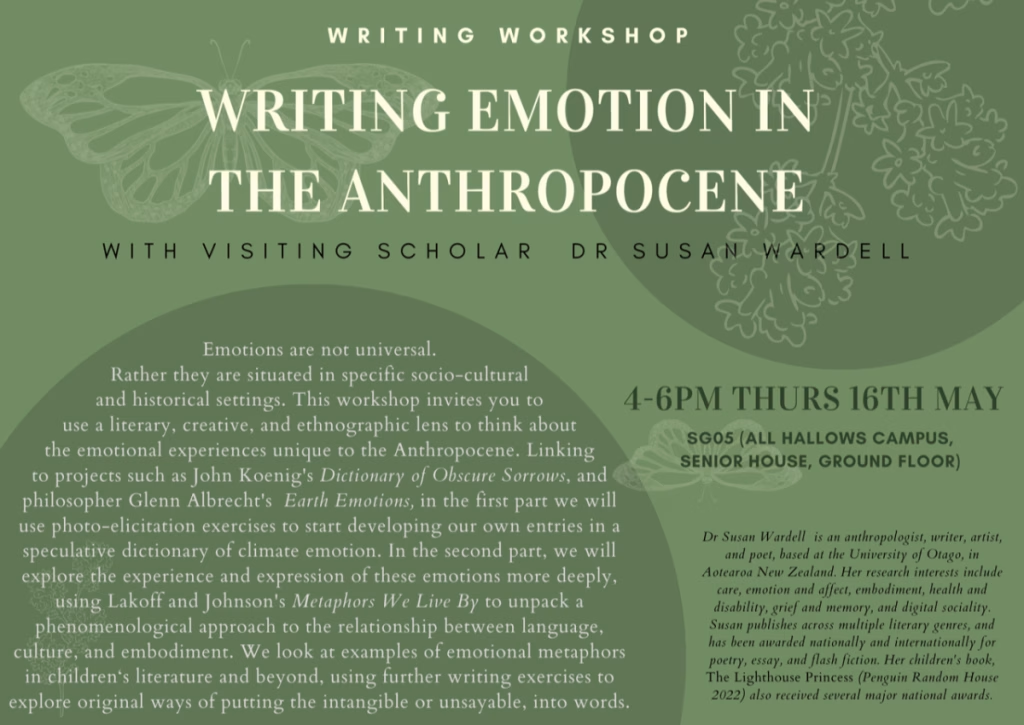
Understanding the Intersection of Emotion and the Anthropocene
Dublin City University (DCU) hosted a compelling workshop, “Writing Emotion in the Anthropocene,” led by Dr. Susan Wardell. This workshop, organized by Fiona Murphy from the School of Applied Language & Intercultural Studies and Jennifer Mooney from the School of English, delved into the complex relationship between human emotions and the current geological epoch, the Anthropocene. The Anthropocene, characterized by significant human impact on the Earth’s geology and ecosystems, presents a unique backdrop for exploring the emotional landscape of our time.
Why Writing Emotion Matters in the Anthropocene
The Anthropocene compels us to confront profound changes in our environment, prompting a wide range of emotions from anxiety and grief to hope and resilience. Writing provides a powerful tool for processing these emotions, making sense of the challenges we face, and fostering a deeper connection with the natural world. By exploring emotions related to climate change, environmental degradation, and societal shifts, writing can help us navigate the complexities of the Anthropocene and envision more sustainable futures.
The Workshop Experience at Dublin City University
The workshop at DCU provided a unique opportunity for MA and PhD students to engage with these critical issues. Dr. Wardell guided participants through various writing exercises and discussions, encouraging them to explore their own emotional responses to the Anthropocene. The workshop fostered a supportive environment for creative exploration and critical reflection, allowing students to develop their writing skills while deepening their understanding of the emotional dimensions of the Anthropocene.
Key Takeaways for Aspiring Writers and Scholars
The “Writing Emotion in the Anthropocene” workshop emphasized the importance of interdisciplinary approaches to understanding the Anthropocene. By bringing together perspectives from literature, environmental studies, and psychology, the workshop highlighted the interconnectedness of human emotions, environmental issues, and creative expression. Participants gained valuable insights into the power of writing to raise awareness, inspire action, and promote dialogue on critical environmental and social issues. They were encouraged to experiment with different writing styles and genres, such as poetry, fiction, and creative nonfiction, to effectively convey the emotional complexities of the Anthropocene.
Applying Insights from the Workshop
The workshop’s insights can be applied in various academic and creative contexts. For aspiring writers, exploring the emotional dimensions of the Anthropocene can enrich their storytelling, providing fresh perspectives and compelling narratives. Scholars can utilize writing as a research method, exploring the emotional impacts of environmental change on individuals and communities. Moreover, educators can integrate these concepts into their teaching, fostering critical thinking and emotional literacy among students.
Study at Dublin City University with Studygram
Take the next step in your education at Dublin City University. Let Studygram help you with the application process—fill out the form today to get started!

